You know how some people are obsessed with stamp collections or fantasy football teams? Well, we're obsessed with cookbooks. Here, in Books We Love, we'll talk about our favorites.
Today: Michael Ruhlman interviews Ann Hood about food and family -- and shares her legendary family pork chop recipe.
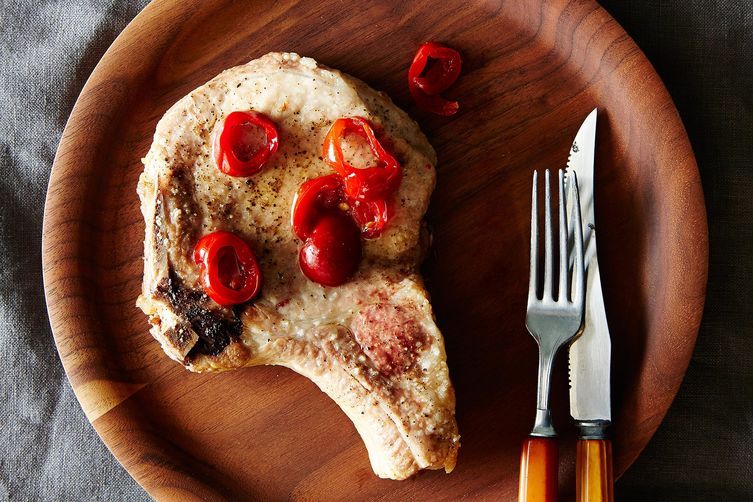
I first met Ann Hood at The Bread Loaf Writers' Conference, summer 1988, on a fellowship there. Ann had just published her first novel, Somewhere Off the Coast of Maine, called "brilliant" by the New York Times; since then, she has gone on to write many more books, fiction, two memoirs, and the most recent, An Italian Wife, a compilation of stories written over a span of 15 years that come together as an unexpectedly cohesive multi-generational novel.
Hood associates the compulsion to write stories with food and cooking. In my mind, too, cooking and writing both originate in the same part of the creative mind. To celebrate her new book, we went out to talk about food and family at a red-meat-sauce Italian restaurant, somewhere south of 14th Street. I did not make Ann happy. The food was terrible, so we reunited in Little Italy on Mulberry Street for drinks (me, a martini, Ann, an old-fashioned), to talk about her relationship with food and cooking and family, all of it inextricably bound up in her writing.
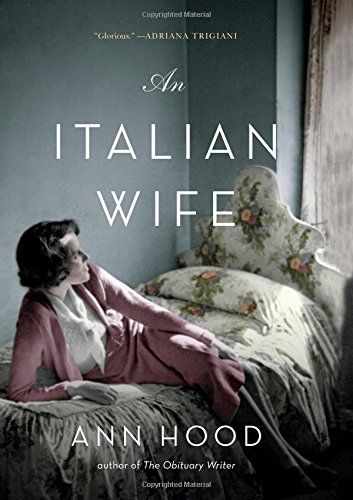
Michael Ruhlman: Ann, you opened tonight’s reading by talking about two moments in kitchens that changed your life. You went from the modern-day American kitchen of a friend, home to your grandmother Mama Rose’s kitchen -- she’s stirring a pot like a witch, as you described her -- and you ran upstairs and wrote your first story, unhinged by the contrast of an American kitchen to your Old World kitchen, where the adults still spoke Italian. So writing stories is directly linked to cooking and the home kitchen somehow. What was an old world home kitchen like?
Ann Hood: Basically, my great grandmother and Mama Rose did all the cooking as long as they lived, and they lived a long time. We had Italian-American food every night. It was always pasta on Sunday. It was always some kind of veal on Monday. It was always soup on Tuesday. Another pasta on Wednesday, and then there would be pork. We were Catholic so Friday got the fish. Saturday was the only day that was kind of a free-for-all, but it was usually fried fish or fried doughboys. Everything centered around the kitchen
MR: And this was just you and Mama Rosa.
AH: It was my grandmother, my great grandmother, two unmarried great uncles, an unmarried great aunt, a widowed aunt and her child, my parents, my brother, me -- and then Mama Rose had ten children, so it was her children and their spouses, 24 cousins, and I’m not even getting into the extended family.
MR: This was a daily thing?
AH: The big one was on Sundays -- up to 40 people. People arrived at noon, after church. She cooked all day, this little woman not quite five feet tall. All day, every day. She cooked, she grew everything, she slaughtered the animals. We had rabbits. We always got them for gifts. We named them, and then they ran away. Yeah, we were older when we realized she was killing them. We had goats, mostly for milk. We had sheep.
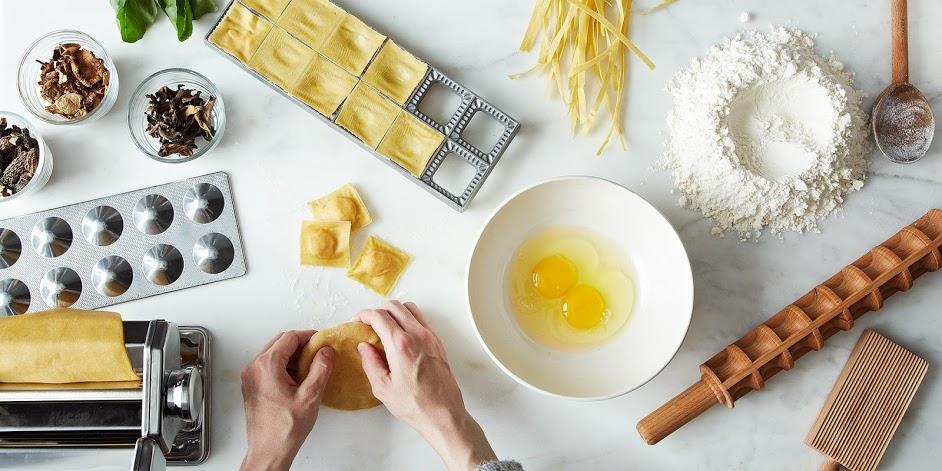
MR: How many people were in the household?
AH: Nine. One bathroom. Small house. In 1963 we added a bathroom and divided the apartment for my great aunt and two great uncles. Yeah, there were a lot of people. I used to go to bed with my hands over my ears because it was always noisy.
MR: If someone’s doing all this cooking, a lot of family time together is spent around the kitchen table, and you’re talking in multiple languages?
AH: They spoke in Italian. We -- my generation -- were not allowed to learn, so they spoke in Italian when we were around if they didn’t want us to know what they were talking about, which is typical in immigrant families. But the whole center of my house growing up, and actually my house now, is the kitchen table. And I just think that who’s sitting there is what changes. It used to be the older people, speaking in Italian and broken English, when I was young, and then it became my aunts and uncles. They all smoked. They drank black coffee until two in the morning, and they just told stories and ate. You know, I remember in the Capote biography, he said there were no books in his house -- that he learned to tell stories from listening to his aunts tell stories on the front porch. And that’s how I learned -- around the kitchen table.
More: You'll want to try these 5 Italian comfort foods.
MR: So, the food. What were some of your favorites? Did you embrace all the Italian food? Did you love it? Did you want American food?
AH: I wanted American. I wanted TV dinners. I always loved Mama Rose's pork chops. That was always my favorite thing. Still is.
MR: How did Mama Rose do the pork chop? Breaded?
AH: Not breaded, just fried. Sometime’s she'd put hot peppers on them. Veal cutlets she used to bread and fry. They were my least favorite. Because I didn’t like the breading. And I loved spaghetti and meatballs. To this day I could eat them every day.
MR: Well, it’s why you ordered the spaghetti and meatballs when we went to the restaurant that shall not be named.
AH: One of the best things about coming home from school on Mondays was watching Mama Rose make meatballs. And she would make like 200 -- because so many people came! And she always counted them. It was funny. She’d say, “Ayy, I got 186 don’t take that one.” And as little kids it was a big thing -- we would mix the meat and the bread crumbs and the parsley and stuff.
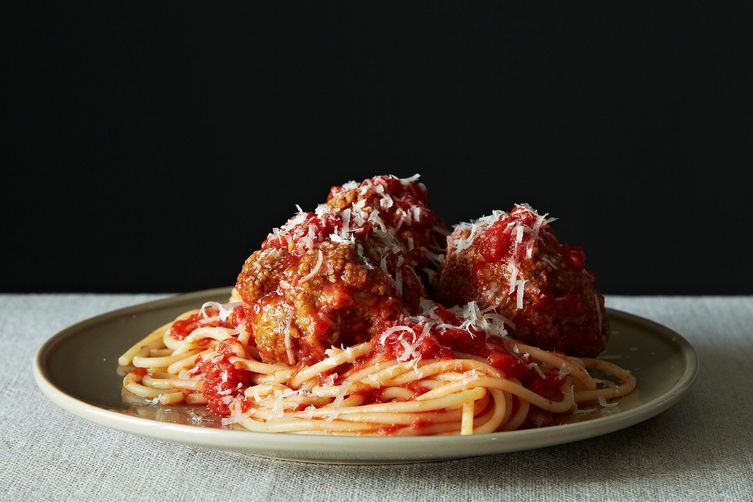
MR: So you’d partake in the cooking?
AH: Always. She would fry meatballs. Unlike the ones we had the other night, they were small, like the size of a golf ball. And fried, without sauce, hot out of the pan. It is still my favorite thing to eat. When my mother does it, she calls and says, “They’re coming out of the pan,” and I drive there immediately. One of the problems with ours at that restaurant was that they gave us a giant meatball the size of our head.
MR: So hers were the right size, cooked properly, crisp on the outside.
AH: Crisp on the outside, not soft, right. And I also liked sausage. When I was really little, my great grandmother would make the sausage herself. My grandmother didn’t do that. She realized you could buy it at the butcher.
MR: And how about pasta? Was pasta an ever-present thing?
AH: Always pasta. They made homemade gnocchi. But the rest wasn’t homemade.
MR: Did you always have a pasta course?
AH: Not always, but usually. You know, like with pork chops and stuff [we wouldn't always have one].
More: Learn how to make fresh pasta from scratch.
MR: Now we started out the other night with an appetizer that was stuffed calamari, and that was a special-occasion dish in your house, which is why you ordered it.
AH: It was rubbery, remember? Fried calamari is such a big appetizer today. We always had it stuffed. With sausage, braised. It was always in the sauce in the oven, pulled out, sliced.
MR: Now on to the stuffed pork shoulder the other night, also a dish from your childhood.
AH: There was very little meat on that one. Ours at home would have looked more like a singular thing that you would slice. And the description on the menu was pretty much what we would have: The stuffing would contain pignolis, garlic -- I think raisins might show up, too.
MR: And then it was just seared and braised?
AH: It would be cooked in the sauce that you would put on the pasta.
MR: She was cooking the pork in a way that would also flavor the pasta sauce.
AH: Exactly. So on Sundays, we would have pasta in a giant bowl and then a platter of meat. And that meat could be anything from meatballs and sausage, to the pork I described. It might be a rolled beef -- which is delicious -- and stuffed. It could be ribs, fatty ribs, and whatever pork product [we were using] would start that sauce and then cook in it.
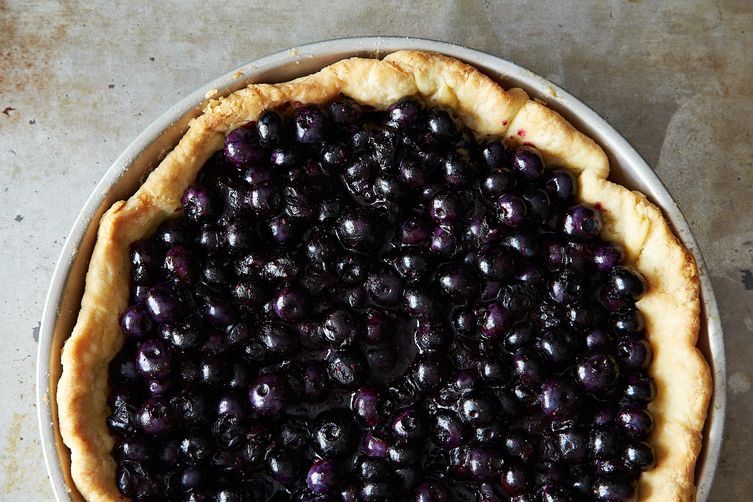
MR: Did Mama Rose do dessert? How did you conclude a meal?
AH: We weren’t big on sweets. Fruit. Figs. Clementines. Kumquats were big. My grandmother made fruit pies in the summer. Whatever she grew. So cherry -- we had a cherry tree -- we had lots of blueberry pie.
MR: Last question about food: How important is food to your family and why? What does food mean to you in your life, to your family?
AH: This sounds hyperbolic, but it’s indistinguishable. Like when we get together, it’s all about food. We just eat. When I go to visit my mom -- she still lives in the house where she was born, the house my great grandparents bought when they came to this country -- I say, I’m coming. I walk in that door and pork chops are made because she knows it’s my favorite, and we sit around and eat.
MR: So do you have a cache of Mama Rose's recipes so that she can live on in the food?
AH: No. There were no recipes. There’s not a recipe in our house. Mama Rose is the recipe.

Mama Rose's Pan-Fried Pork Chops with Vinegar Poppers
Serves 4
For the 24-Hour Pickle:
2 to 4 hot and sweet peppers, as desired
White wine or white vinegar, as needed
1 tablespoon sugar
1 teaspoon kosher salt
For the pork chops:
4 bone-in pork chops (1 1/4-inch thick)
Salt and pepper
Olive oil
See the full recipe (and save and print it) here.
Pork chop photo by Mark Weinberg; book cover by W. W. Norton and Company; all others by James Ransom






See what other Food52 readers are saying.